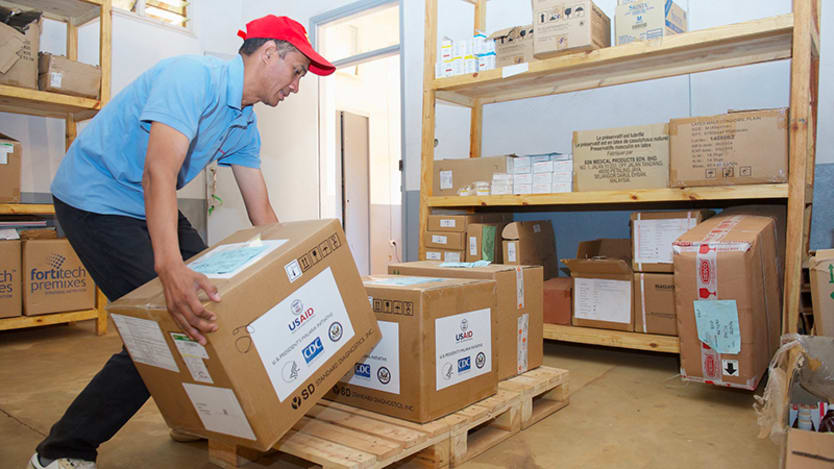Chemonics expects health supply chain project extension through 2023

WASHINGTON — Chemonics International is reassuring staff on the largest U.S. Agency for International Development contract ever awarded that it expects to be implementing the project for at least the next four years, even though some competitors have already begun recruiting for the next version of the award.
The Global Health Supply Chain Procurement Supply Management project is a $9.5 billion effort to coordinate the procurement and delivery of lifesaving health commodities in more than two dozen countries. The first years of the project were plagued by management challenges, prompting corrective action by USAID and questions from the U.S. Congress about how global health supply chains should be run differently.
Chemonics’ leadership now say they are delivering on their performance benchmarks and providing USAID with the supply chain services they initially promised.
“I’d like to reassure you that USAID has informed us ... of their intention to extend the period of performance through at least 2023.”
— René Berger, contractor, ChemonicsThe project, which began in Jan. 2016, is scheduled to run for five years, with an option for USAID to extend its performance for an additional three years. Three of its components are scheduled to run through Nov. 2020, while a fourth is scheduled through Sept. 2021. In late May, USAID released two requests for information, soliciting feedback about options it might consider as it begins to think about restructuring the health supply chain project for its next round of bidding.
According to Chemonics’ leadership on the project, neither those requests for information, nor the fact that other firms have begun recruiting for positions in hopes of competing for the new award, should be reason to worry.
“You may have recently seen that some U.S. government implementing partners — outside of the current consortium for GHSC-PSM — are posting advertisements to recruit staff for the next iteration of the PSM project, which they believe will start around Nov. 2020,” René Berger, a contractor who directs the contract for Chemonics, wrote on Sept. 26 in an email to staff, which Devex obtained.
“I’d like to reassure you that USAID has informed us ... of their intention to extend the period of performance through at least 2023,” Berger wrote, adding that the project’s second “task order,” which coordinates malaria commodities in support of the President’s Malaria Initiative, has “already issued a request for proposal for the extension.”
USAID did not confirm or deny that the period of performance has been extended. Devex also contacted the President's Emergency Plan for AIDS Relief, which relies on the health supply chain, but did not receive a response.
More on supply chains
► Exclusive: Chemonics battles wave of challenges with $9.5B health supply chain project
► 5 takeaways from the USAID supply chain hearings
► Opinion: How can the development community best support PEPFAR's transition to local partnerships?
The request for information that USAID issued in May represents one of the first steps in the process of designing the next round of awards, but Berger noted that USAID’s track record in issuing complex contracts suggests that it could take years for the agency to complete that process. The next step would be a draft request for proposals, followed by a final request. It then takes an average of 270 business days for USAID to actually award the contract, Berger told his colleagues.
“Given the potential size, complexity, and questions on the last solicitation, I would not be surprised if the next iteration of the project will take longer to award,” he wrote.
Berger noted that it is “not surprising that partners may believe the project is due to end next year,” given the initial period of performance of the award, but he noted that “USAID has made it clear to us the expectation to extend the current GHSC-PSM contract for the full expected life of project of eight years.”
In September, Devex spoke to executives at Chemonics, including Berger, about the contractor’s efforts to improve the project’s performance after implementation problems during its transition and startup phase. Berger said that USAID has also told Chemonics the agency intends to build a year of overlap between the current implementer and the next into its design of the next project.
“You start backing that up from 2023 — a year of overlap is 2022, a year to get a contract done is 2021. That means you've got to get it out on the street pretty soon,” Berger said.
“So it doesn't make me nervous to say, ‘Oh, the sky is falling, we're going to end, and we should stop worrying about what work we're doing.’ I think to me, it's all the point to say, ‘Hey this is great. Let's all be collectively thinking about where should this field be going, what are the opportunities out there,’” Berger said.
Search for articles
Most Read
- 1
- 2
- 3
- 4
- 5


